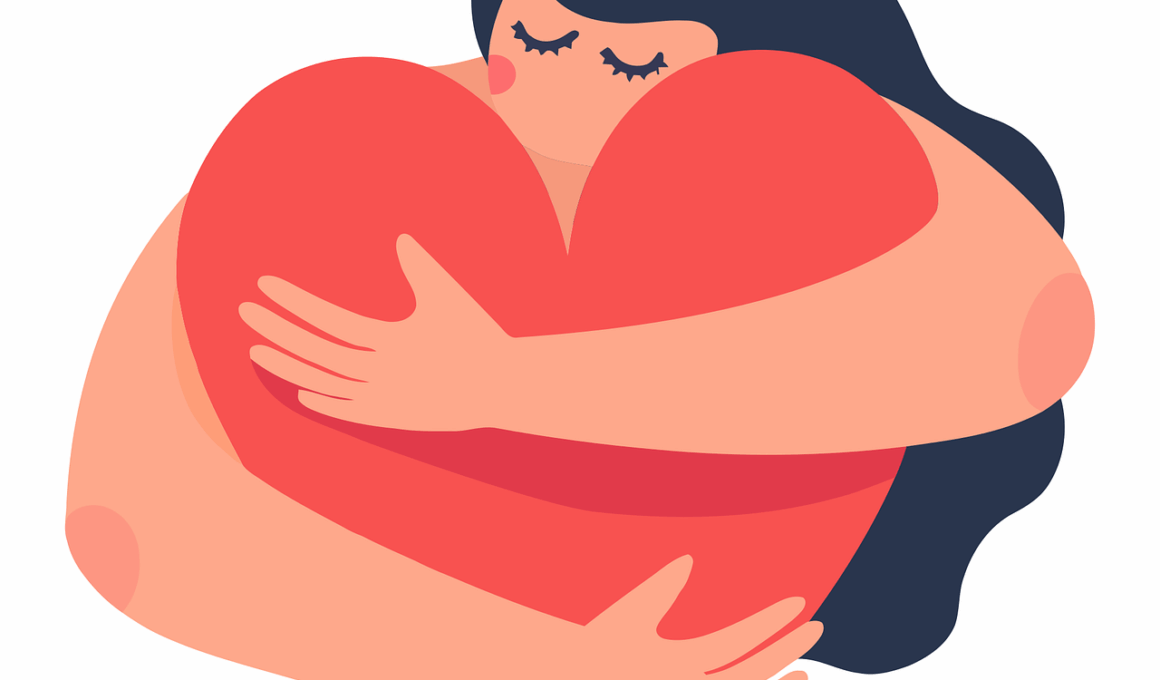The Impact of Hormonal Imbalance on Self-esteem and Body Image
Hormonal imbalances can significantly affect psychological well-being, leading to profound shifts in self-esteem and body image. Hormones such as estrogen, testosterone, and cortisol play critical roles in regulating mood and physical appearance. When these hormones are out of balance, individuals may experience mood swings, anxiety, or depression, which can undermine self-confidence. It’s crucial to recognize that hormonal changes can stem from various sources, including stress, diet, lifestyle factors, and underlying medical conditions. For instance, women often undergo significant hormonal fluctuations during menstruation, pregnancy, or menopause, which can alter how they perceive themselves. In men, low testosterone levels can lead to fatigue, weight gain, and decreased libido, affecting body image. Understanding these dynamics is essential for those experiencing hormonal imbalances, as awareness can lead to better mental health and self-acceptance. Over time, managing these changes through lifestyle adjustments and professional support can facilitate improved self-esteem. Emphasizing self-care practices, such as regular exercise and balanced nutrition, can significantly enhance both hormonal health and self-image.
One crucial aspect of how hormonal imbalances can affect self-esteem involves the influence of body image. Individuals grappling with hormonal fluctuations often encounter changes in weight distribution, skin condition, and overall physical appearance, leading to a negative body image. For example, women experiencing polycystic ovary syndrome (PCOS) may gain weight or develop acne due to hormonal changes, making them feel unattractive and leading to dissatisfaction with their bodies. Men, similarly, may face body image issues stemming from increased body fat or diminished muscle mass due to low testosterone levels. This negative self-perception can trigger emotional distress, contributing to feelings of inadequacy and decreased motivation to engage in social or physical activities. Support from friends, family, or professionals is vital in navigating these emotional challenges. Encouragement from loved ones can reinforce positive perceptions of body image and help individuals understand that they are not alone in facing these struggles. Seeking therapeutic guidance also provides coping strategies aimed at enhancing self-acceptance, ultimately improving mental well-being and body appreciation.
Another important factor is the interplay between hormonal balance and emotional health. Hormonal imbalances can precipitate emotional disturbances leading to insecurity and self-doubt. Stress hormones, particularly cortisol, can exacerbate feelings of anxiety and unease, making it difficult for individuals to maintain a positive self-image. Furthermore, when hormones fluctuate unpredictably, it may contribute to mood disorders like depression, further intensifying negative thoughts about oneself. This can lead people to withdraw from social interactions, perpetuating a cycle of isolation and reinforcing negative self-perceptions. Engaging in mindfulness practices, such as meditation or yoga, can be beneficial in combating these emotional challenges. Such strategies foster emotional regulation and encourage individuals to remain present, helping them cultivate a more positive outlook on their body and self-worth. It’s essential to address both the physiological and psychological aspects of hormonal health to facilitate overall well-being. With professional help, individuals can learn to reframe their thoughts, focusing on self-compassion and acceptance, and gradually improving their self-esteem and body image.
Understanding Hormonal Effects on Mental State
Exploring the relationship between hormones and mental states is vital for comprehending the psychological effects of hormonal imbalances. Hormone levels are directly linked to various neurotransmitters, which play essential roles in mood regulation. For instance, serotonin, a neurotransmitter associated with feelings of happiness, can be influenced by hormonal levels such as estrogen. When women experience a dip in estrogen due to age or hormonal disorders, they may hence feel sad or apathetic. Conversely, fluctuations in testosterone can affect men’s energy levels and aggressive behaviors, leading to frustration when levels drop. This domino effect highlights how intrinsic hormonal health impacts external behavioral manifestations. Recognizing this relationship enhances awareness and offers insights into managing emotional responses. Individuals affected by hormonal imbalances should maintain a close dialogue with healthcare providers to evaluate their hormonal levels regularly. Lifestyle modifications, including a balanced diet and exercise, also play a pivotal role in regulating hormones, indirectly influencing mental well-being. Ultimately, empowering individuals with knowledge about their hormonal health can foster adaptability and resilience in managing both psychological and physiological challenges.
Additionally, societal norms around appearance heavily influence the psychological effects of hormonal imbalances. Modern culture often promotes unrealistic beauty standards, placing immense pressure on individuals to meet certain aesthetic ideals. Hormonal imbalances during development or adulthood, which alter body shape or skin condition, can lead to feelings of inadequacy, particularly in adolescent populations sensitive to peer comparisons. For example, teenagers with acne or weight issues caused by hormonal changes may experience bullying, which severely impacts their self-esteem and psyche. Understanding that these external pressures exist can help individuals contextualize their experiences and enable them to resist negative societal influences. Building communities around acceptance and diversity is crucial in combating these damaging perceptions. Encouragement from peers and participation in support networks can help reshape personal narratives, allowing individuals to appreciate their unique beauty regardless of societal standards. Creating open dialogues about body positivity aimed at embracing all shapes, sizes, and hormonal situations can empower individuals with the confidence needed to overcome challenges. By highlighting innate individuality, society can collectively shift towards a more inclusive understanding of beauty.
Moreover, addressing the longevity of psychological effects stemming from hormonal imbalances demonstrates a need for ongoing support. Individuals undergoing hormonal treatment or lifestyle adjustments need to realize that healing is not instantaneous. It’s essential to cultivate patience and persistence in managing both the physical and mental aspects of these imbalances. Regular therapy, counseling, or peer support groups provide valuable platforms for discussing struggles and triumphs. Sharing experiences can foster a sense of unity and belonging. Furthermore, professionals specializing in hormonal health can offer insights about coping strategies, nutrition, and exercise tailored to hormonal conditions. Journaling can also serve as a powerful tool for self-reflection and personal growth. Chronicling emotional experiences alongside physical changes can facilitate an understanding of connection, guiding individuals to recognize patterns and develop tailored coping strategies. Establishing realistic goals is key, as this awareness can help set achievable milestones in self-improvement. A gradual approach allows individuals to celebrate small victories, creating a motivational framework to sustain progress. Emphasizing mental health alongside physical health is crucial for holistic well-being; both must be nurtured together.
Transformative Strategies for Improved Self-esteem
Lastly, exploring transformative strategies for improving self-esteem can significantly empower those facing hormonal imbalances. Emphasis on self-compassion is critical; individuals should work on being kinder to themselves amid struggles. Learning to accept one’s body, irrespective of hormonal influences, requires an ongoing mindset shift. Practicing daily affirmations can reinforce positive beliefs about self-worth. Alongside affirmations, celebrating personal achievements—big or small—can substantially enhance self-esteem levels. Individuals should also engage in physical activities that promote joy rather than focus solely on aesthetics. Find hobbies or exercises that encourage creativity, freedom, and self-expression. Surrounding oneself with uplifting and supportive relationships is crucial, as social connections provide necessary encouragement. Equally important is nurturing mental well-being through professional support when needed. Understanding that seeking help is a strength rather than a weakness fosters resilience in facing hormonal challenges. By integrating these transformative strategies into daily life, individuals can develop greater self-confidence and self-acceptance. Over time, these efforts can lead to healthier relationships with themselves and their bodies, showcasing how hormonal health needs to be a priority for overall wellness.
In conclusion, chronic hormonal imbalances necessitate a comprehensive evaluation of their psychological impacts on self-esteem and body image. These imbalances intricately weave into emotional health while shaping individual perceptions simultaneously. By recognizing the powerful connection between hormonal levels, mood, and body perception, individuals can take proactive steps towards regaining balance. A multifaceted approach that incorporates lifestyle modifications, emotional support, and educational resources proves invaluable. Ongoing self-awareness, coupled with supportive partnerships, allows for greater resilience in navigating hormonal challenges. Additionally, it’s crucial to foster a societal paradigm shift towards body acceptance that values diversity and individuality. Such transformations require collective efforts that emphasize the importance of mental well-being alongside hormonal health. As people become more informed about the biological-psychological relationship, they can better advocate for their well-being and inspire change within their circles. Ultimately, creating an atmosphere of understanding encourages open conversations about hormonal health, body image, and mental wellness. Individuals should feel empowered to embrace their journey towards self-acceptance while combating societal pressures. Through awareness, support, and proactive measures, it’s possible to foster a healthier, more positive self-image through every hormonal stage of life.


